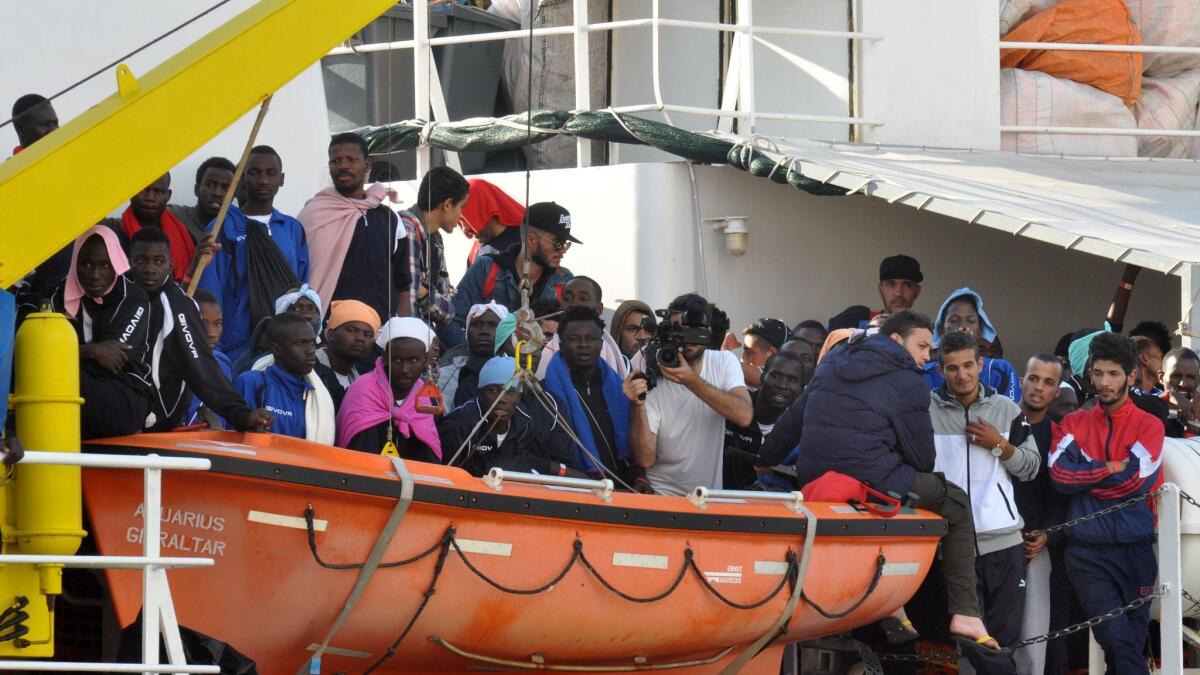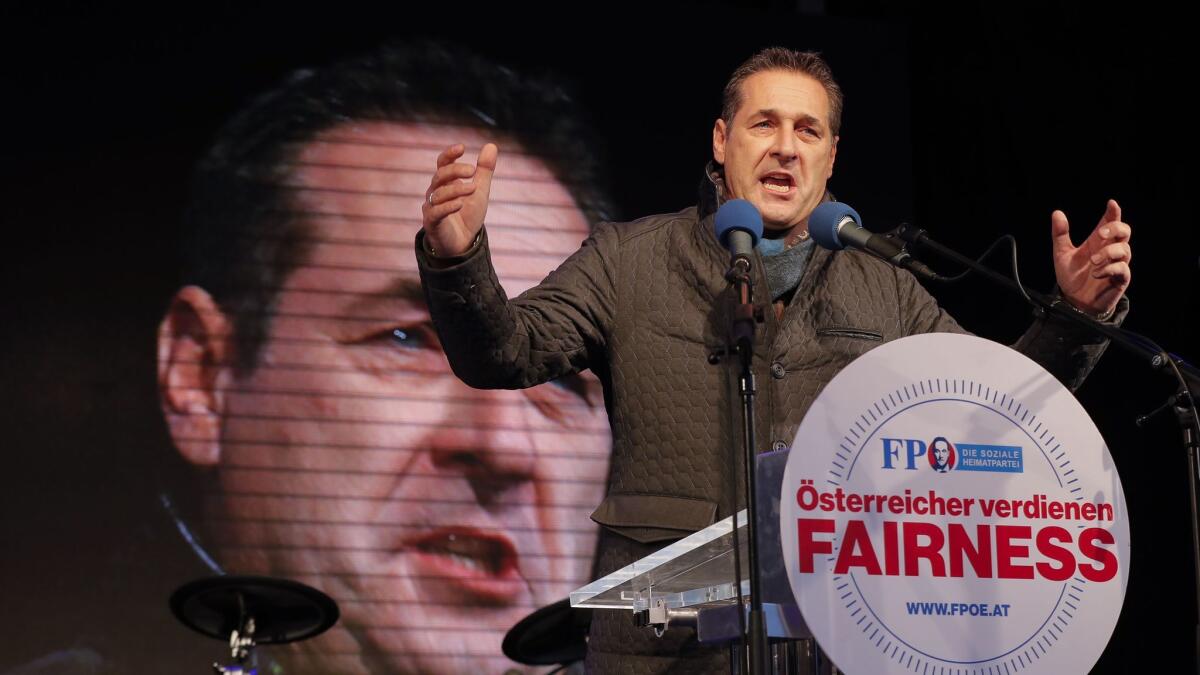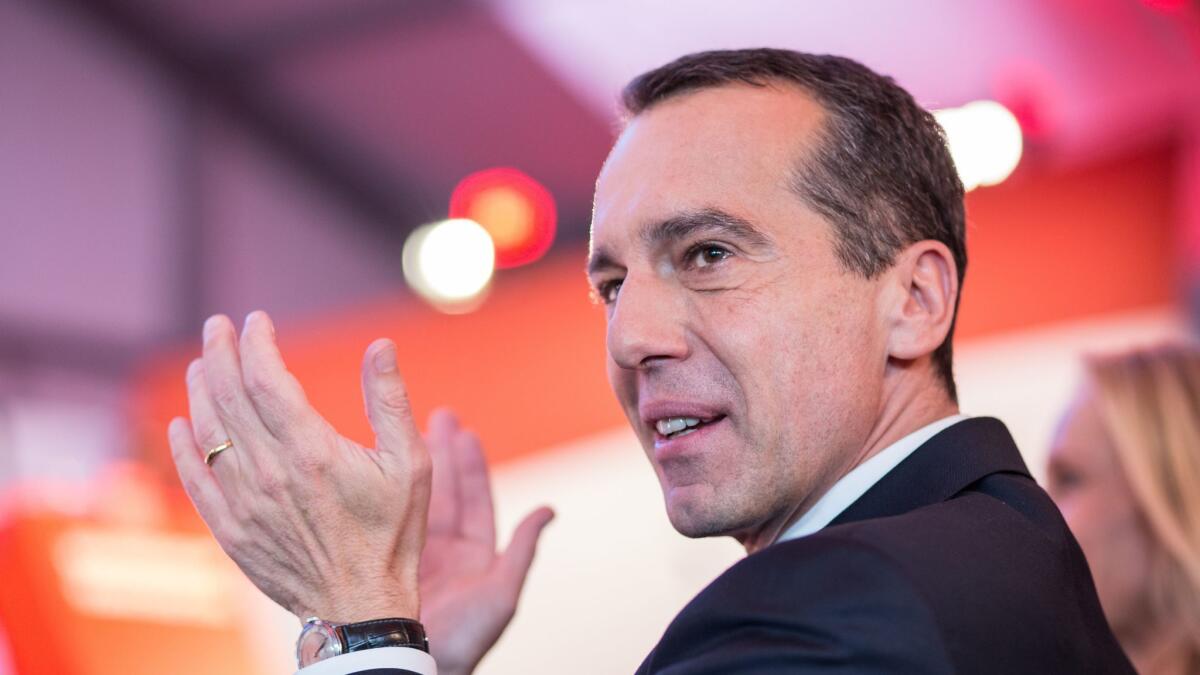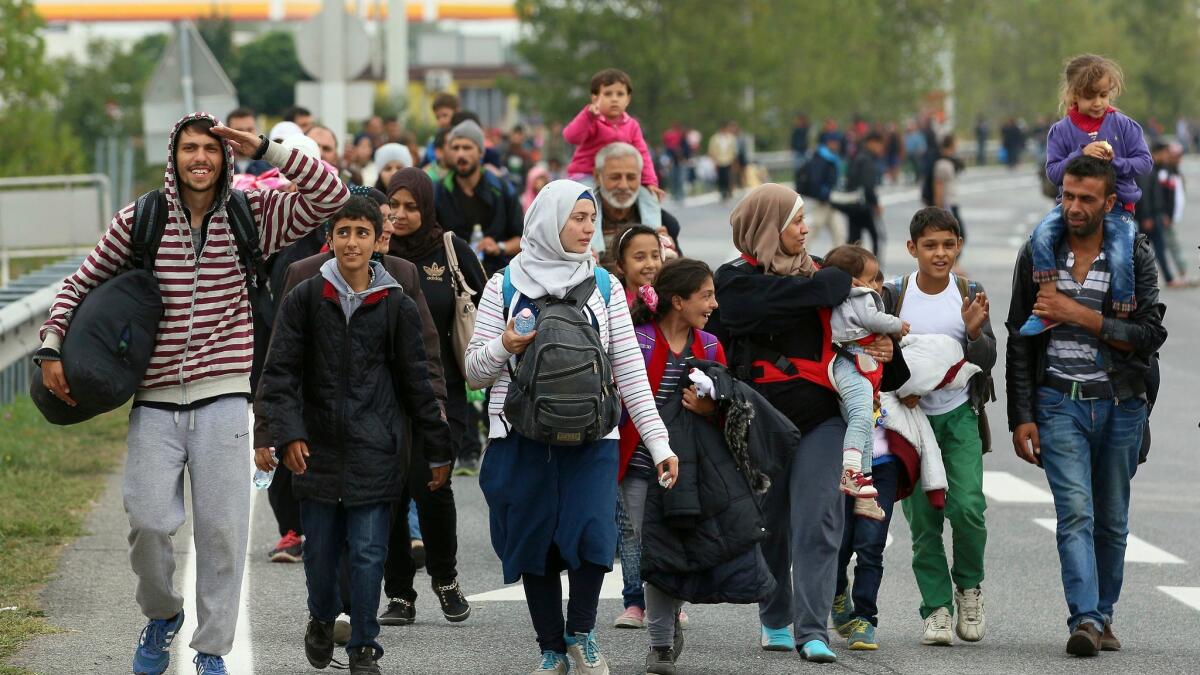Austrians head to the polls Sunday, and nation appears set to swing to the far right

- Share via
As Austrians head to the polls on Sunday to elect a new government, one main issue dominates the political discourse: concern over migrants.
Polls indicate that the Central European country’s new parliament is poised to tip to the far right as voters appear to be heeding the anti-immigrant message of the strongly-positioned far-right party.
The vote, scheduled for Sunday, comes a year after the country rebuffed a far-right populist in Austria’s presidential election. It also comes against the backdrop of Sicily taking in 600 migrants who were rescued at sea on Friday after fleeing Libya. The new arrivals triggered concerns over a potential renewed flood of migrants from the North African nation, which spiked last month after a lull earlier this year.
Here’s what we know about Austria’s election, the anticipated outcome, and what a far-right Austrian government might mean for migrants and for Europe.
Who are the main competitors?
More than a dozen parties are competing for 183 seats in the national parliament, but only three are expected to win the majority of votes.

The People’s Party, led by 31-year-old Sebastian Kurz, currently the country’s foreign minister, has a strong lead, according to polls. The center-right party that has dominated Austrian politics since 1945 has promised to get tough on illegal immigration and adopted a more nationalistic tone.
Leading the tight race for second place was the far-right Freedom Party, led by Heinz-Christian Strache. Last year, the party’s presidential candidate, Norbert Hofer, narrowly lost a bid for the Austrian presidency. The Freedom Party, which was founded by former Nazis in 1956 and had until recently remained on the fringes of Austrian politics, gained support by lambasting refugees, migrants and Austria’s political establishment.

Polls put the center-left Social Democrats, an establishment mainstream party, like the People’s Party, in third place. The message of the party, led by Christian Kern, has tended to focus on social justice.
If the standing of these three parties holds, it is widely believed that the Freedom Party could enter a coalition government with the People’s Party, shifting the country to the far right.

Why are migrants a hot-button issue?
As a result of the influx to Europe in 2015 of hundreds of thousands of people fleeing the war in Syria and sub-Saharan Africa and economic deprivation in other developing nations, Austria ended up with close to 100,000 newcomers, most them Muslims.
As has been the case in other European countries, such as Hungary, many Austrians fear that their country’s Christian and European values will be eroded. Some believe that Austria will become a target for Islamic extremism, because terrorists might seep in with the flood of migrants and refugees.

There is widespread consensus in the anti-migrant camp that Middle Eastern migrants, who are fleeing their homeland for security reasons, would be better served to remain closer to home in stable countries such as Jordan, where the religion, culture — and even the weather — are similar to what Muslim migrants are accustomed.
Other Austrians worry that accepting more migrants would put a strain on the country’s social services.
What would a far-right Austria mean for migrants and for Europe?
The welcome mat would likely be pulled from under migrants, and illegal immigrants would face a more stringent crackdown.
Already, at the height of the European migrant crisis of 2015, Austria had balked at a European Commission plan for hundreds of thousands of asylum-seekers to be redistributed throughout Europe, as a way to give some relief to countries on the front lines of the migrant corridor, such as Greece, Macedonia, Serbia, Croatia and Slovenia.
In July, Austria threatened to close its borders when Italy announced it would consider granting visas to migrants to allow them to travel throughout the European Union.
The EU would also be confronted with Austria’s euro-skepticism as the far-right coalition would likely push EU reform of the political and economic community that could include defining new rules for divvying up responsibility for taking in migrants and new regulations for external borders.
Special correspondent Erik Kirschbaum in Berlin contributed to this report.
For more on global development news, see our Global Development Watch page, and follow me @AMSimmons1 on Twitter
More to Read
Sign up for Essential California
The most important California stories and recommendations in your inbox every morning.
You may occasionally receive promotional content from the Los Angeles Times.














